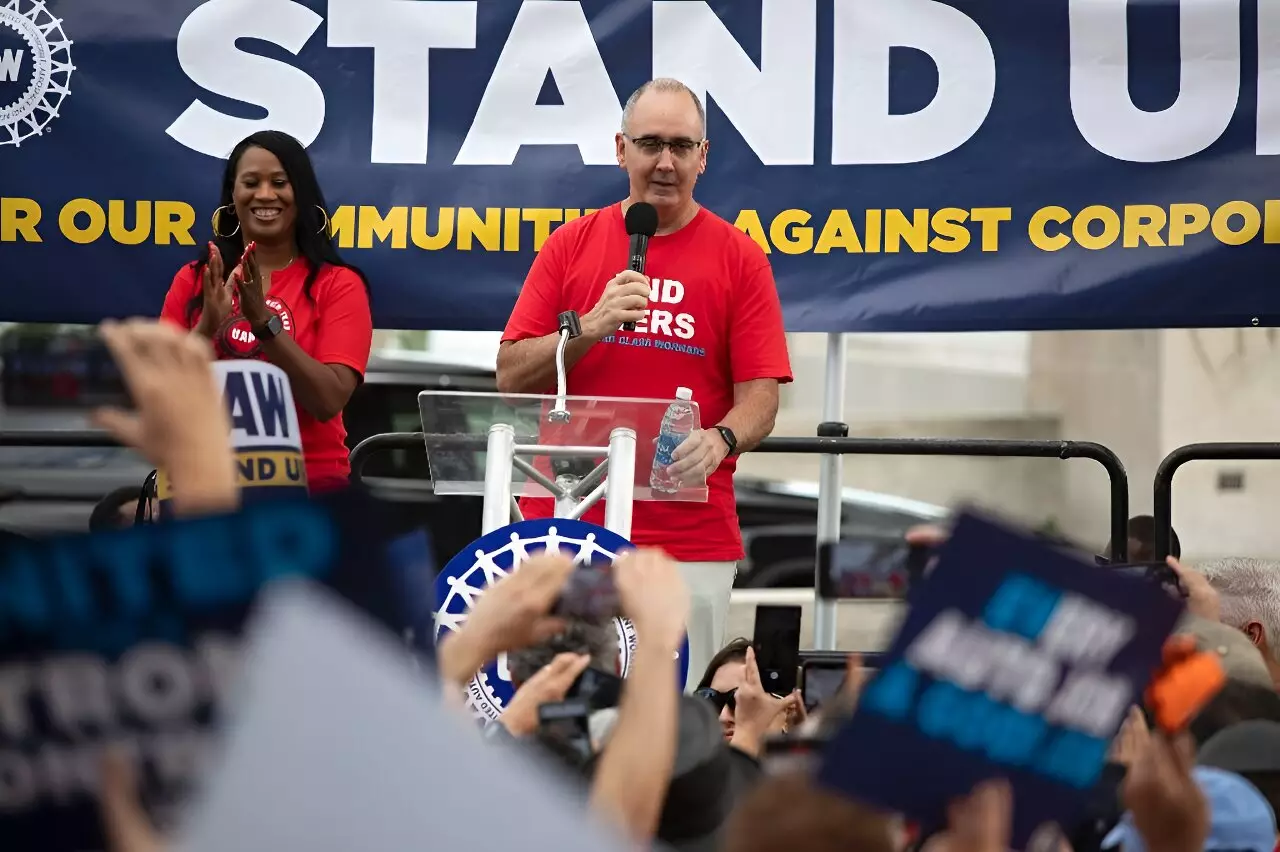The recent rejection of the union drive at Mercedes-Benz’s Alabama facilities dealt a significant blow to the United Auto Workers’ efforts to organize in the American South. The preliminary results released by US authorities revealed that 56% of workers voted against unionization, marking a setback for the UAW’s ambitions in the region. Despite the UAW’s victory at Volkswagen in Tennessee earlier this year, the outcome at Mercedes-Benz US International (MBUSI) highlights the challenges faced by labor organizers in the South.
President Shawn Fain expressed disappointment at the result and criticized Mercedes for what he described as “egregious and illegal behavior” during the campaign. The UAW alleged that the company engaged in anti-union communications and violated labor laws, leading to complaints filed with the National Labor Relations Board and German officials. Fain reiterated the UAW’s commitment to continuing its efforts to organize workers in the South, emphasizing the importance of justice and persistence in the face of adversity.
In response to the union drive and subsequent vote, Mercedes stated that it appreciated the participation of employees in expressing their views on the matter. The company emphasized its commitment to working directly with its team members to ensure a positive work environment and foster a sense of community within the organization. Despite the tensions surrounding the unionization efforts, Mercedes sought to maintain a constructive dialogue with its workforce and uphold its reputation as an employer of choice.
The rejection of the union drive at Mercedes underscores the enduring challenges faced by organized labor in the American South. Southern politicians and local officials have long resisted unionization efforts, citing concerns about economic impact and competitiveness. However, the UAW’s recent successes in Detroit and at Volkswagen had raised hopes for further expansion in the South, particularly at plants operated by major automakers. The strike at Detroit automakers last fall, which resulted in significant wage increases and gained national attention, provided a boost to the UAW’s visibility and credibility.
Looking ahead, the UAW faces formidable obstacles in its quest to organize workers in the South. Anti-union campaigns, like the one seen at Mercedes, present a formidable challenge to labor organizers seeking to build support among employees. Nevertheless, the UAW remains determined to press on with its efforts and build on its momentum from recent victories. By highlighting the tangible benefits of union membership and drawing on past successes, the UAW aims to overcome resistance and expand its presence in the American South.
The rejection of the union drive at Mercedes-Benz’s Alabama facilities reflects the complex dynamics of labor relations in the American South. While the setback is significant, the UAW’s resilience and commitment to justice suggest that the struggle for workers’ rights and collective bargaining power will continue. By learning from the challenges faced at Mercedes and adapting its strategies accordingly, the UAW may yet succeed in its mission to organize the South and empower workers across the region.


Leave a Reply